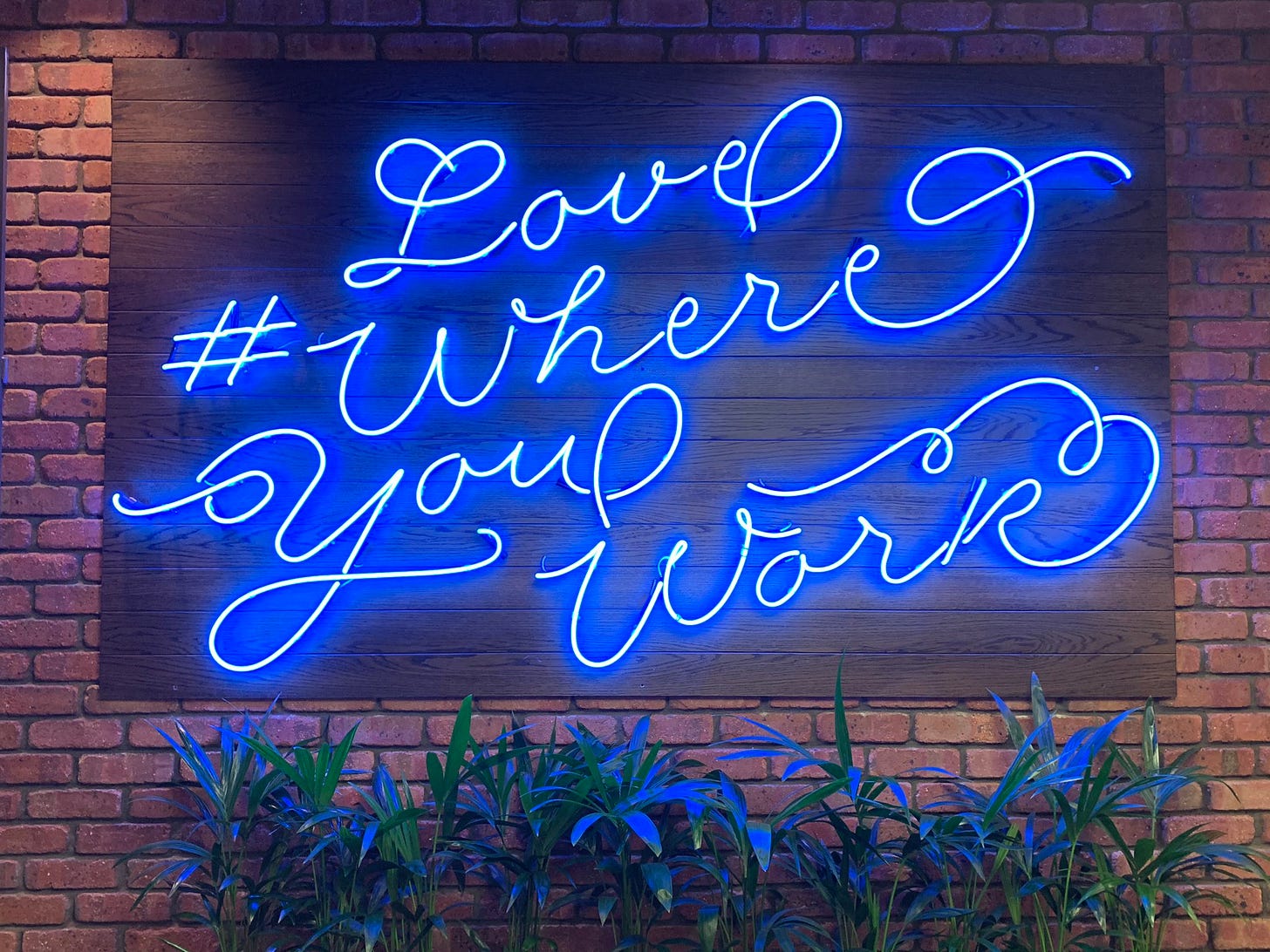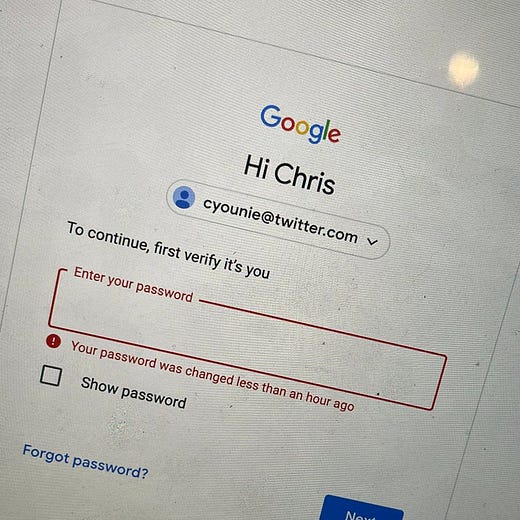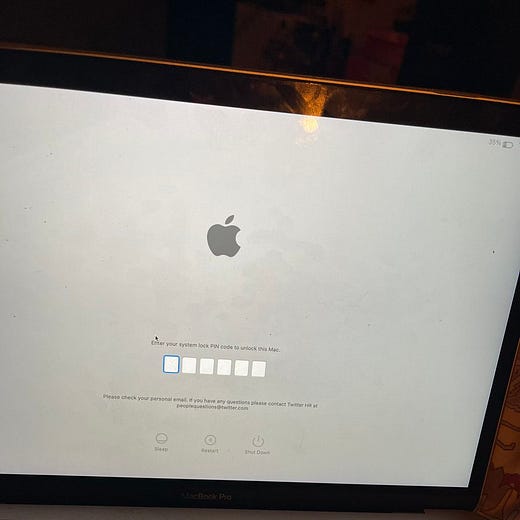#LoveWhereYouWork - my experience of Twitter culture
Firstly some context, I tend not to talk about it here (or on the Eat Sleep Work Repeat podcast) but I worked for Twitter for eight years from 2012 to 2020. Initially I helped to build the UK team then evolved to a leadership role across Europe, Middle East and Africa. It was most decidedly not exclusively down to me but the culture of the London office was famed throughout the business. It was when the culture went wrong (after a second round of global job cuts around 2015-16) that I started my podcast. At the time it was a small act of rebellious subversion against what I saw as misguided global leadership. I’ve just written a post on the 5 Workplace Culture Mistakes of Elon Musk, and this is a post about the original culture of the place.
Great culture often has rituals, symbols or traditions that help pass meaning on and the London office had that in the form of a hashtag. From the outside, the #LoveWhereYouWork tag might have seemed to be something of corporate brainwashing. In fact occasionally journalists invited to the London office would see our neon sign and would share a spicy hot take about how Twitter employees were cultishly instructed to love their jobs.
In truth the use of the hashtag organically rose up, it was first used by a beloved colleague Lucy Mosley. Within days at the end of 2013 Lucy had initially gone off sick, then been diagnosed with terminal cancer, then been whisked off to a hospice. Her partner asked us not to contact his 32 year old fiancée so the team was left in anxious silence. Everything came at such whirlwind pace that the small office struggled to catch our breath as we lost touch with someone we loved at such a devastating moment. Necessity denied us the chance to talk to her (or even to send a single representative to visit) and as a reaction the entire office had set about learning to knit.
During one hectic week in mid October the office had sounded to the click-clack of knitting needles. Internal meetings routinely featured two or three team members quietly counting stitches during presentations. The vast blanket that we created wouldn’t have a commanded a huge retail price but was woven out of pure love.
We had the blanket dry cleaned and shipped. Then, after days of silence, a tweet from Lucy lit up our phones. The message contained the hashtag #LoveWhereYouWork and without anyone’s say-so after Lucy’s passing that week it became our motif.
(I explain in more detail at the end of the Joy of Work, read it for free here, and here is the story told in tweets). When we moved office our genius facilities team, Tracy Hawkins and Helen Moyes, had the tag immortalised in a sign in the centre of our main meeting area. The working environment was characterised by autonomy. Bosses in San Francisco seemed to like the ideas coming out of London and left us to get on with them. As a result we felt free, striving to do distinctive work differentiated from the Silicon Valley cliches of our competitors. The #LoveWhereYouWork hashtag was the campfire we gathered around to celebrate each other.
Pretty soon other offices, vocal in their admiration of the London culture, asked if we would mind if they added the hashtag to their own workspaces. (You’ll see lots of examples down this list).
While the return of Jack Dorsey (he’d set up Twitter then been fired, then became Chairman and then became CEO again, as you’ll no doubt see on the inevitable mini series) led to an evolution of the hashtag to #OneTeam, the core tenets remained the same - Twitter was famous for its cohesive culture, weirdos welcome. Over the years there were countless examples of team members celebrating the unique character of the place. (Here are some good examples from the wild). Often the biggest advocates were people who had made it there after working at other tech firms.
Of course, the perennial question about strong workplace culture is whether it manages to accelerate outstanding business performance, or whether in fact it creates a relaxed comfort that prevents it. Does unreasonable achievement require unreasonable pressure? Certainly the accepted narrative of Twitter is that it has underperformed versus Google and Facebook. The product team of Twitter saw a former intern leave to set up Instagram in its own image. The firm bought hot new thing Vine, saw it become a rocketship product used by half of all American 15-24s and left it without food in the spare room when it hit a slowdown.
In truth aside from confused product direction Twitter teams outperformed the limitations of the product given to them. Twitter had a reputation for sending the best people into meetings, delivering the best presentations at events and many Twitter alumni will toast the fact that they were empowered to do their best ever work at the place.
While my belief predated my time at Twitter the notion that a good culture could exist *despite* the leadership was certainly given reaffirmation at the firm. It’s not to say leadership was bad but sometimes they tried hard to give that impression.
For the most part employees at Twitter were led by the love of the app. A product that inspired them, made them laugh, gave a voice to voiceless. Team members fought to do the right thing for the hundreds of millions of people who used Twitter every day. The Twitter culture genuinely felt unique and special - and employees who worked there generally show a gratitude for their time at the firm.
Of course, the story didn’t end well. And this post shares Elon Musk’s first three workplace culture mistakes as Twitter boss.







